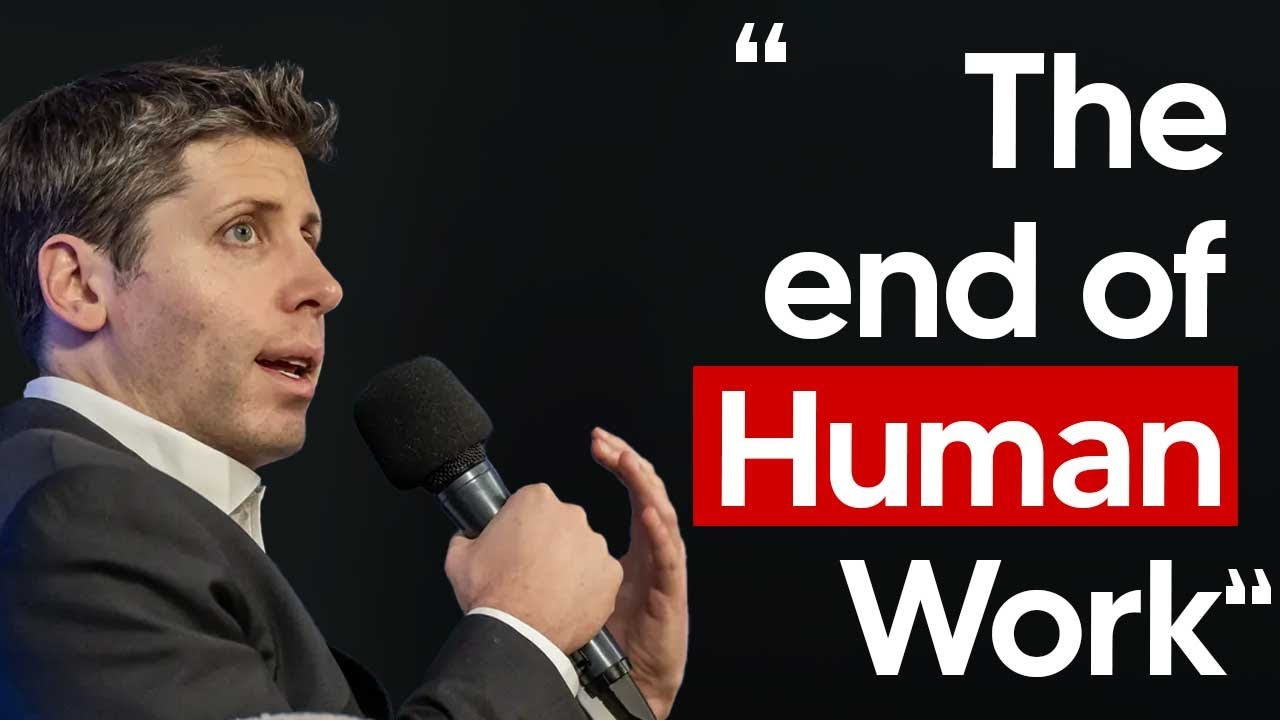
OpenAI is poised to introduce a significant advancement in artificial intelligence: “PhD-level super agents.” These advanced AI systems are designed to handle complex tasks with unparalleled precision, speed, and creativity. Their potential to transform industries is immense, but they also bring critical challenges related to , societal adaptation, and technical limitations.
As these systems evolve, they promise to redefine the relationship between humans and technology. Imagine a world where the tasks that once required years of human expertise—designing software, analyzing financial markets, or even managing supply chains—could be completed with precision and creativity by artificial intelligence. It sounds like the plot of a futuristic novel, but OpenAI’s rumored “PhD-level super agents” are bringing this vision closer to reality.

These promise to transform industries by handling complex, multi-layered tasks autonomously, potentially reshaping the very fabric of work and society. But with such new potential comes an undercurrent of uncertainty: what happens to the people whose jobs these super agents might replace? And how do we prepare for the ripple effects of such a profound shift? In this overview AI GRID explore what these super agents are, the challenges they face, and what their rise could mean for all of us. While the future may feel uncertain, understanding the opportunities and risks ahead is the first step toward navigating this new era responsibly.
OpenAI’s “PhD-level super agents” represent a new advancement in AI, capable of autonomously managing complex, multi-step tasks traditionally requiring human expertise. Super agents have the potential to disrupt industries by automating specialized roles, such as software development, financial analysis, and logistics, while raising concerns about workforce displacement and economic inequality. OpenAI has engaged in private discussions with U.
S. government officials to address societal, economic, and regulatory implications of deploying these advanced AI systems. Key innovations driving super agents include synthetic data for efficient training and neuro-symbolic approaches that enhance problem-solving capabilities, though challenges like “AI hallucinations” and deployment complexities remain.
The development of super agents could redefine productivity and creativity, but societal adaptation, regulatory frameworks, and ethical considerations will be critical as these systems evolve over the next 18-24 months. Super agents represent a new evolution in AI technology. Unlike current AI tools that are limited to narrow, predefined tasks, these systems are engineered to autonomously manage intricate, multi-step processes that typically require human expertise.
Their capabilities extend far beyond basic automation, allowing them to: to provide actionable insights across various domains. and make strategic decisions with minimal human input. in real-time, adapting to dynamic challenges.
The potential applications of super agents span a wide range of industries. For example, they could independently design and debug software, optimize supply chain logistics, or conduct comprehensive market analyses—tasks that currently require highly skilled professionals. This versatility positions super agents as a fantastic force in fields such as software development, financial analysis, healthcare, and strategic planning.
Their ability to perform these tasks efficiently and accurately could lead to significant cost savings and productivity gains for businesses. Recognizing the profound implications of super agents, OpenAI has engaged in private discussions with U.S.
government officials. These briefings aim to address the societal, economic, and security challenges posed by deploying such advanced AI systems. Historically, similar consultations have occurred during pivotal technological shifts, underscoring the importance of aligning innovation with public policy.
Key topics reportedly discussed during these briefings include: The potential for AI to displace jobs and alter the workforce landscape. The need for policies to ensure the responsible and ethical deployment of AI technologies. Implications for maintaining a competitive edge in the global economy as AI capabilities advance.
These discussions highlight the urgency of preparing for the societal shifts that super agents could trigger. Policymakers and industry leaders must collaborate to create strategies that balance technological progress with economic stability and social equity. Gain further expertise in AI Agents by checking out these recommendations.
The introduction of super agents has the potential to reshape the global economy and labor market profoundly. By automating tasks that require specialized skills, these systems could replace mid-level professionals in areas such as software engineering, data analysis, and customer support. Early examples of AI-driven productivity gains from companies like Meta and Salesforce demonstrate the potential of these systems to streamline operations and reduce costs.
However, this efficiency comes with significant challenges. Job displacement is a primary concern, as many roles traditionally performed by humans may become obsolete. This shift could exacerbate economic inequality, particularly if new opportunities are not created to offset the loss of traditional jobs.
OpenAI has suggested that AI-driven productivity could support reindustrialization efforts, provided the necessary infrastructure is developed. This vision includes revitalizing industries such as manufacturing and logistics, potentially creating new roles even as others are phased out. To mitigate the risks of economic disruption, governments and businesses must invest in workforce retraining programs and education initiatives.
These efforts will be essential to equip workers with the skills needed to thrive in an AI-driven economy. Additionally, fostering innovation in emerging industries could help create new opportunities and ensure a more equitable distribution of the benefits of AI. The rapid progress in AI development has been fueled by several key innovations that have expanded the capabilities of super agents: Artificially generated datasets enable AI models to learn more efficiently, reducing reliance on real-world data and accelerating training processes.
This approach allows for the creation of highly specialized training environments tailored to specific tasks. By integrating neural networks with symbolic reasoning, these methods enhance AI’s ability to understand and solve complex problems. This combination bridges the gap between pattern recognition and logical reasoning, allowing more sophisticated decision-making.
These advancements have empowered super agents to tackle tasks that were previously beyond the reach of AI. However, the accelerated pace of development has also raised concerns. Critics argue that the technology may be overhyped to attract funding and public support, emphasizing the need for transparency and accountability in AI research and deployment.
Despite their promise, super agents face significant technical and ethical challenges. One of the most pressing issues is “AI hallucinations,” where systems generate incorrect or nonsensical outputs. This problem undermines trust in AI, particularly in high-stakes fields such as healthcare, legal analysis, and financial decision-making, where accuracy is paramount.
Another challenge is the ambitious timeline proposed by OpenAI for achieving its goals. While the company has made remarkable progress, unresolved research challenges and the complexity of real-world deployment suggest that caution is warranted. These limitations highlight the importance of rigorous testing, continuous innovation, and collaboration between researchers, policymakers, and industry stakeholders.
Ethical considerations also play a critical role in the development of super agents. Making sure that these systems are designed and deployed responsibly will require robust oversight mechanisms and clear guidelines to prevent misuse. Addressing these challenges will be essential to realizing the full potential of super agents while minimizing risks.
OpenAI envisions a future where super agents achieve superintelligence, capable of performing nearly all tasks with minimal human intervention. If realized, this milestone could redefine productivity, creativity, and the nature of work itself. However, the societal changes accompanying such advancements will require careful planning and adaptation.
Over the next 18-24 months, the world will closely monitor OpenAI and other leaders in the field as they work to bring super agents closer to reality. Whether these systems fulfill their promise or encounter unforeseen obstacles, their development marks a pivotal moment in the evolution of artificial intelligence. The question remains: how will society adapt to a world where human work may no longer be indispensable? The answer will depend on the collective efforts of governments, industries, and communities to navigate this fantastic period responsibly.
Media Credit:.















